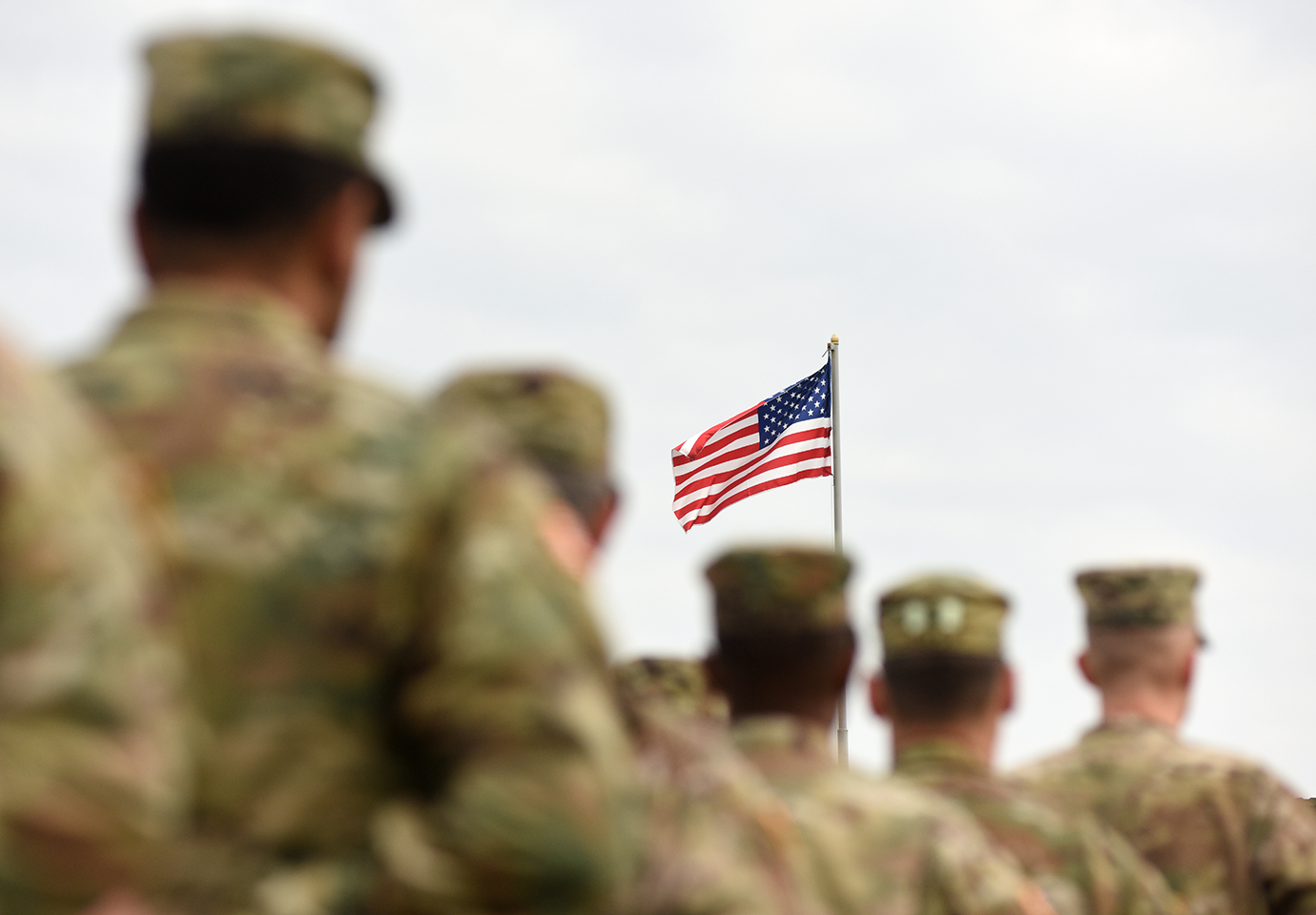Emory Law's Veterans Clinic grows to aid Georgia veterans

As Veterans Day approaches, Emory Law’s Volunteer Clinic for Veterans (VCV) expects to add new staff to expand its work to get Georgia’s former service personnel the benefits they have earned. To address growing homelessness among veterans, the Veterans Administration this year approved $11.5 million in legal services grants, including $150,000 to the VCV, which was one of five law schools to receive funding among 79 grantees nationwide.
The federal grant allows the VCV to hire a part-time paralegal and another mid-level staff attorney, which will bring the clinic’s staff up to three attorneys, said VCV Fellow Xuting Zhang 22L, who joined the clinic in March. He expects new hires will be on board this year.
“Our clinic primarily represents clients in VA disability benefits and discharge upgrade cases,” Zhang said. “Access to VA disability benefits is crucial for our clients, many of whom are unemployed due to severe mental and physical health conditions. For some, these disability benefits are their sole source of income. By using legal tools to help veterans secure a stable income, we play a vital role in preventing homelessness.”
To offset the frequent moves that military service requires, the government provides food and housing allowances. When their final tour ends, the loss of structure and support can be disorienting, especially if their new civilian status is due to injury or disability. If that affects their ability to work, loss of income can lead to missed rent and mortgage payments.
“The award is designed specifically for veterans clinics and legal assistance organizations like ours, with the ultimate goal of reducing homelessness among the veteran population,” Zhang said. “The inclusion of a paralegal, a common practice in prestigious law school veterans clinics, will relieve pressure from intakes and improve our client service efficiency.”
On Nov. 10, the clinic will collaborate with the Warrior Alliance and others at Punch Bowl Social in Battery Atlanta to conduct a Veterans Legal Services Clinic for low-income veterans. In May and August, the VCV teamed with volunteer attorneys from King & Spalding, Ballard Spahr, Home Depot, and Atlanta Legal Aid Society to draft more than 40 basic estate planning documents, Zhang said.
The clinic has 15 student volunteers this term, Zhang said, including 10 who volunteer weekly or work on specific assignments. “Several are first-year students who are actively expanding their legal experience through client phone calls and research projects,” he said.
Jerome Miller 24L is an accomplished former Marine Corps captain and Osprey pilot. He’s now a flourishing 3L with a bright career ahead but says his own transition from officer to law student inspired empathy for his newly civilian comrades.
“If I ever needed anything from anyone, anywhere, I always knew where to call,” he said. “Coming back to Atlanta, I didn’t have that stability—that structure that was there for me while I was in the Marine Corps—and I think that’s a challenge that many veterans face.”
The clinic recently celebrated its first decade of operations. With an estimated 700,000 veterans living in Georgia, access to civil legal assistance is always in demand. The clinic also gives Emory Law students hands-on experience in administrative law. This year, former staff attorney Carlissa Carson 08L received the Georgia State Bar’s Marshall-Tuttle Award, which honors lawyers who work on veterans’ behalf. And in 2022, the Clinic received a $150,000 grant from the Arthur M. Blank Family Foundation’s Overwatch Fund.
Kellsie Davis Ruane 23L said her 10-week clinic internship showed her what veterans and their survivors confront.
“I've been able to experience firsthand the complexity and the difficulty in dealing with the VA and veterans law generally,” she said. “And in hearing the experiences of the veterans that I've been able to observe intakes with … it's really clear to me that without the Veterans Clinic and other organizations like it, a lot of veterans would be forced to navigate all of this by themselves.”
A past VCV client has described finally receiving a full honorable discharge 25 years later.
“I did not want to leave the Navy. That’s where the guilt came in because I wanted to continue to serve my country even though I wasn’t able to perform my duties,” he said. “You feel very, very guilty for everyone else being on the front lines and you’re not there.”
“But if you know that you didn’t do anything wrong in your time of service and you feel that you have been diagnosed the wrong way, or something is wrong in your discharge, then fight like hell to make it right,” he said. “Find an attorney and appeal your case and don’t give up. Emory has been fantastic.”